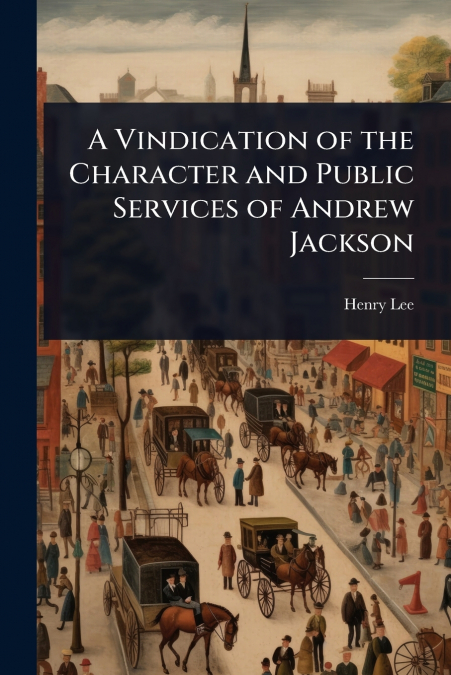
Henry Lee
In 'A Vindication of the Character and Public Services of Andrew Jackson,' Henry Lee presents a powerful defense of the controversial general and future president. Published in 1828 amidst intense political debates, this work aims to solidify Jackson’s legacy by meticulously recounting and justifying his actions during pivotal moments in American history. Lee addresses Jackson’s involvement in the Creek War, the Seminole War, and his military command in New Orleans, countering criticisms and highlighting his strategic brilliance and unwavering commitment to the nation. The text offers insights into Jackson’s interactions with key figures such as Governor Tompkins, French consul Innerarity, and his tenure as Governor of Tennessee and later as Governor of Georgia. This detailed account sheds light on the political climate of the early 19th century, revealing the challenges and conflicts that shaped Jackson’s career and ultimately propelled him to the presidency. Lee’s 'Vindication' remains a valuable resource for understanding the life and times of one of America’s most influential and polarizing leaders.This work has been selected by scholars as being culturally important, and is part of the knowledge base of civilization as we know it. This work was reproduced from the original artifact, and remains as true to the original work as possible. Therefore, you will see the original copyright references, library stamps (as most of these works have been housed in our most important libraries around the world), and other notations in the work.This work is in the public domain in the United States of America, and possibly other nations. Within the United States, you may freely copy and distribute this work, as no entity (individual or corporate) has a copyright on the body of the work.As a reproduction of a historical artifact, this work may contain missing or blurred pages, poor pictures, errant marks, etc. Scholars believe, and we concur, that this work is important enough to be preserved, reproduced, and made generally available to the public. We appreciate your support of the preservation process, and thank you for being an important part of keeping this knowledge alive and relevant.